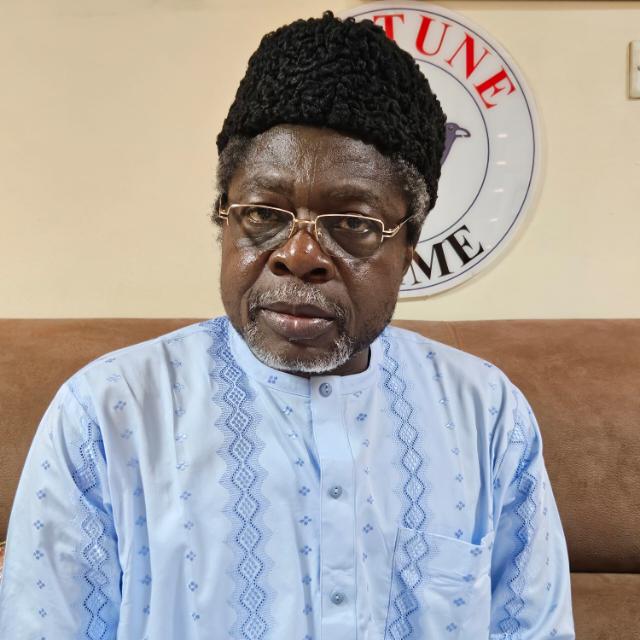Nasarawa State, in the North-Central geo-political zone of Nigeria, was created on 1st October, 1996 with Lafia, a fast urbanizing town along the Northern Benue Valley as its State Capital .
The state has an area of 27, 117 square kilometers, an estimated population of 3.1 million with thirteen Local Government Areas and Sixteen Development Areas. It shares a boundary with the Federal Capital Territory, Abuja.
This proximity to Nigeria’s fast growing capital has steadily guaranteed a fast- moving market for various agricultural crops and products from the State and has facilitated the pace of the State’s economic growth. However, the corresponding influx of people has put enormous pressure on the available social infrastructure.
It has about 35 ethnic groups, with Islam and Christianity as the two main religions. The state has vast agricultural resources and is richly endowed with large deposits of solid material, such as coal(with good cooking properties), barites, limestone, kaolin, salt, and marble.
Expectedly, Nasarawa State is referred to as “the Home of Solid Minerals”. Export of agricultural products to other parts of the country is a major activity that has now been broadened with regular shipment of large quantities of a special yam overseas. The state’s rich natural endowments are complemented by a large reservoir of human resources.
In spite of all these, the people have remained impoverished and underdeveloped. The State is one of those classified by the Federal Government as being educationally disadvantaged.
The euphoria that greeted the creation of the State , an expression of the dreams of the people for a State that would ensure harmony and fast- track their migration to a modern developing State, was soon to be drawn in orgies of violence.
A major factor responsible for conflict in Nasarawa State is the relationship between farmers and the Fulani herders who migrate largely these days as a result of climate change.
Communities are very critical to the development of any society, the world over. Without a well -enlightened and empowered community leaders, no society can have the needed peace and stability to fast- track development.
Most Nigerian communities today, have increasingly become replete with violence, not because they are naturally violent but mainly due the structurally violence nature of the society occasioned by harsh economic realities.
There is therefore the increasing need to involve the communities and the community leaders in peace building and conflict resolutions in Nasarawa State as one of the major antidotes to what is happening in Nigeria presently.
In post-conflict and fragile contexts, where societal tensions are already high and justice systems typically do not function, the need for prompt resolution of disputes is particularly critical.
Without timely, accessible, affordable and trusted mechanisms to resolve differences, localized disagreements or crimes could degenerate into broader conflict. This contributes to cultures of violence and vigilante justice. This to a great extent aptly describes the situation in Nasarawa State and Nigeria in general.
The key to effective management of conflict and peace building in community should be anchored on effective communication between Government and Stakeholders. The Government should engage Non- Governmental Agencies within communities that will help in sourcing the causes and workable solutions to the endemic problems. Government should therefore be proactive in grabbing and sifting any information regarding any matter threatening the peace of the community.
Early warning data banks should be created for the analysis of such information and every information received must be investigated promptly, to determine it’s reality or otherwise.
The local people should be enlightened to be security conscious so they can identify issues that threaten their lives or livelihood in the community.
Peace building programmes should be community based with local content relevant to the security needs of the community.
One of the issues that can weaken any early warning signal is the rate of response.
Efforts must be put in place to ensure that early warning signals are responded to promptly and decisively in order to checkmate any unpleasant security situation within any locality. This, proactive preventive strategy should form the nucleus of any peace building approach in tackling conflict.
There is need to build synergies across all stakeholders and prompt action against defaulters. In this regard, people who are found to be involved in fomenting conflict situations in their areas should be dealt with promptly to discourage other would be trouble makers.
Government should be decisive in taking action on matters which threaten the security of the state. The measures taken by Governor Abdullahi Sule in tackling security challenges in Nasarawa State, especially the handling of the activities of bandits and kidnappers in Nasarawa-South Senatorial District and Nasarawa- Toto- Udege axis as well as the drastic measures taken by the Governor in collaboration with security agencies, traditional rulers, religious leaders in bringing to justice masterminds of the brutal killing of the Nasarawa State APC Chairman Philip Tatari Shekwo and the Nasarawa State Chairman of Miyetti Allah and others are commendable.
There is the need for a broad based and people driven approach to security management as well as involving traditional and community institutions in conflict and disaster management initiatives at all levels.
On issues bothering on unemployment rate in the country, which makes youth susceptible to violent conflicts and insecurity, it becomes imperative that there should be room for knowledge or skills transfer and technical support to promote self- help skills because they are essential principles towards peace building. The engagement of youth and women through skill and technical capacity building programme by the present administration in the state especially the training of youth in ICT and the application of social media networking is a practical step towards making the youth productive and self-employed.
This proactive approach by the State Government in handling crisis in Nasarawa State is commendable. Individuals and stakeholders are expected to preach the gospel of peace, tolerance and mutual coexistence. Nothing can work well in the atmosphere of rancour and violence. Nasarawa State and the country at large needs peace but not peace of the graveyards. God bless Nigeria, God bless Nasarawa State.
Wakeel, a public affairs commentator, writes in from Lafia.




